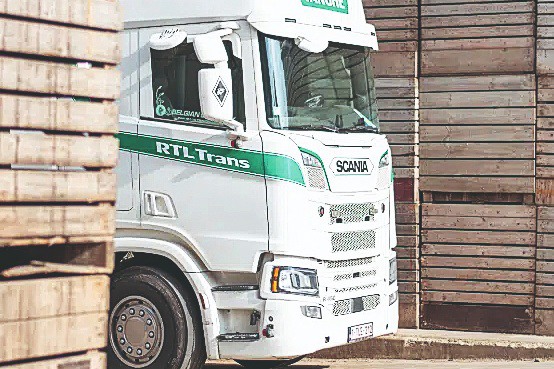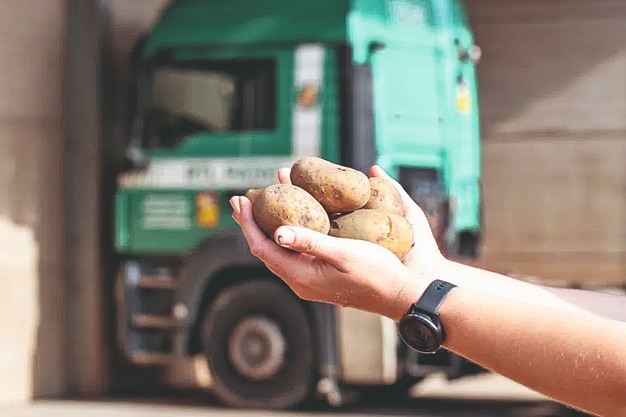Since the 'old' potatoes still dominated the market in July, the new potato season got off to a disappointing start, price-wise. "The potato sector may have been a little too enthusiastic recently," says Rik Tanghe of Belgian potato trader RTL Patats, analyzing the current potato market. He expects it to be an atypical season. "The processing industry grows around four percent annually, so the sky was the limit."
 © RTL Patat
© RTL Patat
"The sector got a little carried away. We must come back to earth. I've been in the trade for 37 years and have never seen zero demand. Now, there's stagnation, especially in the French fry industry, which has proliferated in recent years. We're facing a very unusual year with many challenges. But, it's like that every year: there's always something with potatoes," Rik explains.
 © RTL Patat
© RTL Patat
He expected prices to stabilize at around €40/kg after the pandemic. But those rose to €50 and sometimes even €60. "Now we're paying the price. Acreage has expanded enormously, while global demand has declined." Rik, however, still sees some bright spots. "We're already at rock bottom, so there's only one way to go: up. Also, given the low prices, more exports should get underway," he says.
Good yields early in the year
When it comes to the harvest, Rik indicates that things are looking good. There are fewer tubers, a significant percentage of larger potatoes, and the expected drought and heat in August should mean better underwater weights. He, thus, anticipates a return on investment for French fry potatoes. That, of course, depends on demand, which Rik sees as lagging. "We face competition from countries in Asia. And India, Egypt, Saudi Arabia, and Senegal, among others, are investing in their own cultivation to be independent of imports."
 © RTL Patat
© RTL Patat
"Unlike in Europe, those local governments protect their growers. Europe's high potato prices in recent years stimulated investment in local potato cultivation elsewhere," says Tanghe. Costs have also risen sharply. He notes that personnel and machinery costs, for example, have skyrocketed and that renting potato fields from third parties has become particularly expensive. Rik, nonetheless, expects those costs to be adjusted downwards, as will the potato acreage.
 © RTL Patat
© RTL Patat
He believes brokers will regain importance. They have struggled in recent years due to the sector expansion and the increase in scale at growers. "It's up to the trade to add value for both industries and growers." Rik hopes that this will give the trade a more meaningful role in relation to growers and the sector. "We should, then, be able to retain our role in the chain," he concludes.
Rik Tanghe
RTL Patat
Rekkemstraat 123
8930 Menen (Lauwe)
+32(0) 56 411 989
[email protected]
www.rtlpatat.be
